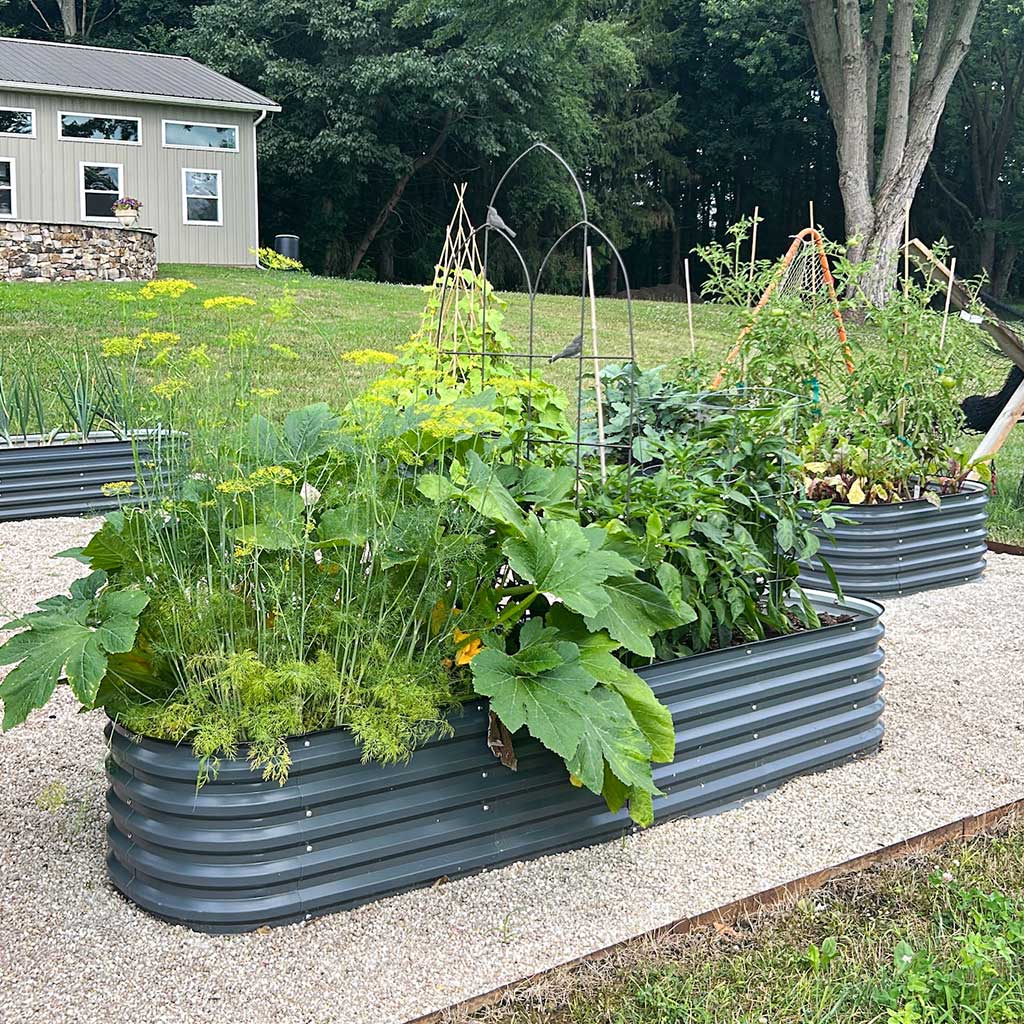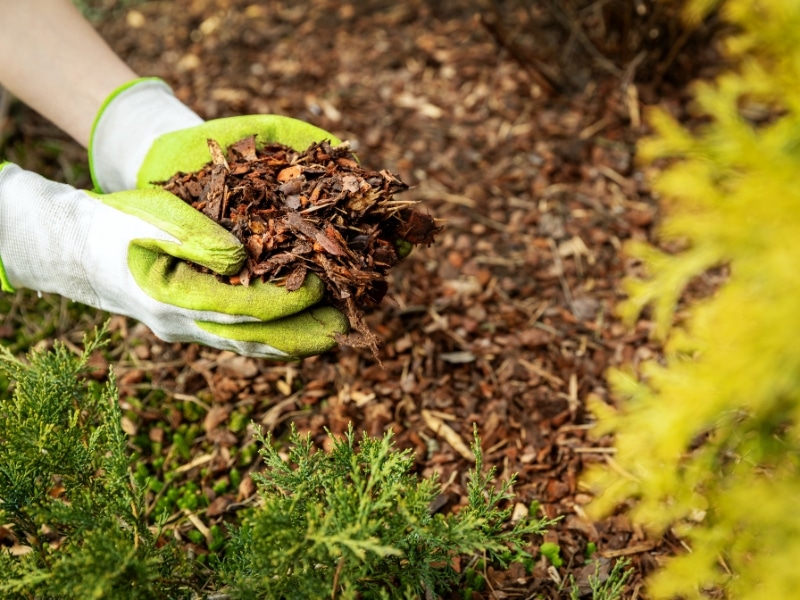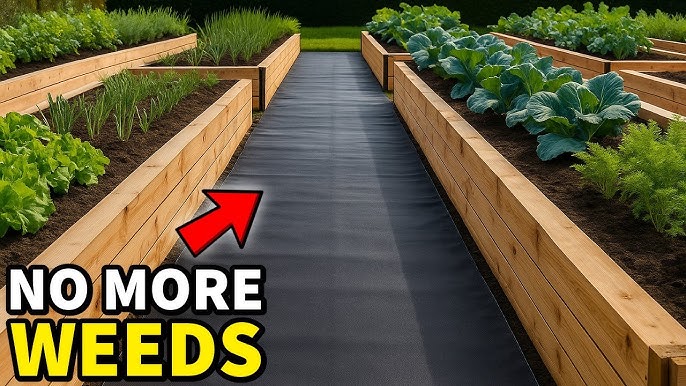Are you tired of seeing stubborn weeds take over your beautiful garden? You work hard to create a vibrant space, but those pesky plants keep popping up, stealing nutrients and spoiling the view.
What if you could stop weeds before they even start, saving time and effort while keeping your garden healthy? You’ll discover simple, effective ways to keep weeds under control so your garden stays lush and thriving all season long. Keep reading to learn the secrets that gardeners swear by—and finally take back your garden!
Identify Common Garden Weeds
Weeds are unwanted plants that grow in your garden. They compete with your flowers and vegetables for space and nutrients.
Knowing the common types of weeds helps you stop them early. This saves your garden from damage.
Types Of Weeds To Watch
Some weeds grow fast and spread quickly. Others have deep roots that are hard to remove. Watch for these common weeds:
- Dandelions – yellow flowers with fluffy seeds
- Crabgrass – grows low with wide leaves
- Chickweed – small leaves and white flowers
- Bindweed – vine-like with white or pink flowers
- Clover – three-part leaves with small flowers
Why Weeds Thrive
Weeds grow well because they adapt to many conditions. They need little care and spread fast.
Here are reasons why weeds take over gardens:
- They grow quickly and produce many seeds
- Weeds survive in poor soil and low water
- They can grow in shaded or sunny spots
- Weeds spread by wind, animals, or tools
- They compete well for nutrients and space
Prepare Your Garden Soil
Stopping weeds starts with healthy garden soil. Good soil helps plants grow strong. It also makes it hard for weeds to take root.
Preparing your soil is the first step to a weed-free garden. This means testing and improving the soil. It also means using mulch correctly.
Soil Testing And Improvement
Test your soil to know its nutrients and pH level. This helps you add the right things to improve it. Healthy soil stops weeds from growing well.
Add compost or organic matter to feed your soil. This makes the soil dense and less friendly to weeds. It also helps your plants grow better.
- Collect soil samples from different garden spots
- Use a soil test kit or send samples to a lab
- Add lime if the soil is too acidic
- Add sulfur if the soil is too alkaline
- Mix compost or aged manure into the soil
Proper Mulching Techniques
Mulch blocks sunlight, stopping weed seeds from sprouting. It also keeps soil moist and cool. Use mulch after preparing your soil.
Apply mulch in a thick layer. This prevents weeds from pushing through. Organic mulches break down and improve your soil over time.
- Clear weeds before adding mulch
- Use 2-4 inches of mulch for best results
- Keep mulch a few inches away from plant stems
- Use bark, wood chips, straw, or shredded leaves
- Replenish mulch yearly to maintain thickness
Effective Weed Prevention Methods
Weeds can quickly take over your garden if you do not control them. Preventing weeds is easier than removing them later.
Using the right methods helps keep your garden clean and healthy. Two great ways to stop weeds are landscape fabric and organic barriers.
Using Landscape Fabric
Landscape fabric blocks sunlight and stops weeds from growing. It also lets water and air reach the soil.
- Clear the area of existing weeds before placing the fabric.
- Lay the fabric flat over the soil and cut holes for plants.
- Secure the edges with stakes or soil to keep it in place.
- Cover the fabric with mulch to protect it and improve appearance.
- Check regularly for weeds that may grow at the edges or holes.
Applying Organic Barriers
Organic barriers use natural materials to stop weeds and feed the soil. Mulch is a common type of organic barrier.
| Type | Benefit | How to Use |
| Wood Chips | Slow weed growth and add nutrients | Spread 2-3 inches thick around plants |
| Straw | Lightweight and easy to apply | Lay a thick layer to cover soil |
| Compost | Improves soil and suppresses weeds | Mix into soil before planting or top layer |
| Grass Clippings | Free and quick to apply | Dry before spreading to avoid matting |
Manual Weed Removal Tips
Removing weeds by hand helps keep your garden healthy. It stops weeds from taking nutrients and water from your plants.
Manual weeding is simple but needs the right tools and timing. This guide shares tips to make your work easier.
Best Tools For Weeding
Using the right tools helps remove weeds fully. It also saves time and effort while protecting your plants.
- Hand Trowel:Small and pointed for digging out roots.
- Weeding Fork:Lifts weeds gently without harming soil.
- Hoe:Cuts weeds at the soil surface quickly.
- Gloves:Protect your hands from dirt and sharp plants.
- Kneeling Pad:Makes working on the ground more comfortable.
Timing Your Weeding Sessions
Choosing the best time to weed makes removal easier. Weeds pull out better and cause less disturbance.
| Time | Why It Works |
| After Rain | Soil is soft, roots come out easily |
| Early Morning | Weeds are fresh and less wilted |
| Before Seed Spread | Stops new weeds from growing |
| Regular Intervals | Keeps weeds under control |
Natural Weed Control Solutions
Weeds can harm your garden by taking nutrients and space from your plants. Using natural methods helps keep your garden healthy and safe for wildlife.
Natural weed control uses simple, eco-friendly ways to stop weeds from growing without harsh chemicals.
Homemade Weed Killers
You can make weed killers at home using items from your kitchen. These solutions are safe and easy to apply.
- Mix white vinegar with a few drops of dish soap. Spray directly on weeds.
- Boiling water poured on weeds can kill them quickly.
- Salt sprinkled around weeds stops them from growing but use it carefully.
- Baking soda works well on cracks in driveways to prevent weeds.
Beneficial Plants As Weed Suppressors
Some plants naturally stop weeds by covering the soil or releasing chemicals that block weed growth. These plants help keep your garden neat.
| Plant | How It Helps |
| Clover | Grows thick and blocks sunlight to weeds |
| Thyme | Spreads low and releases substances that stop weeds |
| Mint | Spreads fast and shades soil to prevent weeds |
| Marigold | Repels some weed seeds from growing |

Credit: www.vegega.com
Chemical Weed Control Options
Using chemicals can help stop weeds in your garden. It’s important to choose the right products for safety and effectiveness.
Understanding how to apply these chemicals can make a big difference. Let’s explore the best practices for using herbicides.
Choosing Safe Herbicides
Selecting the right herbicide keeps your garden safe. Always read the labels and follow instructions carefully.
- Check if the herbicide targets specific weeds.
- Ensure it’s safe for other plants in your garden.
- Look for environmentally-friendly options.
Application Best Practices
Applying herbicides correctly helps prevent weed growth effectively. Use the right tools and timing for the best results.
| Time | Action |
| Morning | Apply on dry days for best absorption |
| Evening | Avoid watering immediately after application |
| Monthly | Reapply as needed for persistent weeds |
Maintaining A Weed-free Garden
Keeping weeds out of your garden can be a challenge. With the right steps, you can enjoy a healthy, weed-free garden.
Regular care and attention help prevent weeds from taking over. Let’s explore some effective strategies.
Regular Garden Maintenance
Consistent garden care is key to stopping weeds. Spend a little time each week to keep your garden tidy.
Remove weeds by hand or with tools. This prevents them from growing back.
- Water your plants regularly
- Use mulch to block weed growth
- Trim plants to promote healthy growth
Monitoring And Early Detection
Check your garden often for new weeds. Early detection helps you manage them before they spread.
Look for weed seedlings. Remove them when they are small and easy to manage.
- Inspect your garden weekly
- Identify common weed types
- Act quickly to remove new weeds

Credit: abargaingardener.com.au

Credit: www.reddit.com
Frequently Asked Questions
How Do I Prevent Weeds Naturally In My Garden?
Use mulch to block sunlight and retain soil moisture. Regularly hand-pull young weeds before they seed. Plant ground covers to outcompete weeds. Avoid overwatering, which favors weed growth. These natural methods reduce weed presence without chemicals.
What Is The Best Mulch For Weed Control?
Organic mulches like wood chips, straw, and bark are ideal. They suppress weed seeds and improve soil health. Apply a 2-3 inch layer around plants to block sunlight. Mulch also conserves moisture and enhances garden aesthetics.
How Often Should I Remove Weeds From My Garden?
Remove weeds weekly or as soon as you notice them. Frequent weeding prevents seed spread and reduces competition for nutrients. Timely removal is crucial before weeds establish deep roots. Consistency keeps your garden healthy and weed-free.
Can Vinegar Be Used To Kill Garden Weeds Safely?
Yes, vinegar can kill young weeds effectively. Use horticultural vinegar with higher acetic acid concentration for best results. Apply directly on weed leaves on a dry, sunny day. Avoid contact with desirable plants to prevent damage.
Conclusion
Stopping weeds in your garden takes regular care and patience. Mulching and pulling weeds early help keep them small. Planting ground cover can block weed growth naturally. Water your plants carefully to avoid helping weeds. Using simple tools makes weed removal easier and faster.
Small daily efforts prevent big weed problems later. Enjoy a cleaner garden with less work over time. Keep these tips in mind for healthy plants. Your garden will thank you with less weed hassle.


